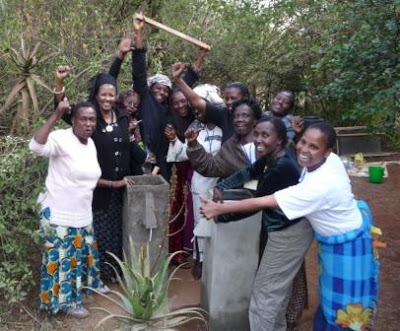Archive for March 2011
We are Together: Sharing observations from the 55th Session on the Commission on the Status of Women!
By Maame Yelbert-Obeng, WEA’s Africa Program Director During the first week of March, I had the opportunity to attend part of the 55th Session of the Commission on the Status of Women (CSW) organized by the United Nations at its headquarters in New York. This year’s CSW session, focusing strategically on “Gender, Education, Science and…
Read MoreIndigenous Women and the Way Forward from Fukushima
“In a [Navajo] creation story, the people were given a choice of two yellow powders. They chose the yellow dust of corn pollen, and were instructed to leave the other yellow powder—uranium—in the soil and never to dig it up. If it were taken from the ground, they were told, a great evil would come.”…
Read MoreReport from the Field: Africa Program
The Africa Program and the Global Women’s Water Initiative are fired up and diligently preparing for our upcoming Women and Water trainings in Uganda. We will be hosting two trainings in July: a Grassroots Women’s Training and an Advanced Trainer’s Training. The Advanced Trainer’s Training will include GWWI Trainers and graduates from our past trainings…
Read MoreCelebrating the 100-year Anniversary of International Women’s Day
Rucha Chitnis, India Program Director, with women farmers in Uttar Pradesh Today marks the 100-year anniversary of International Women’s Day. With ripples of change created by powerful movements world wide, our global community has come far since 1911. And, there is still a long way to go. The UN recently recognized that “longstanding inequalities in…
Read MoreWorld Rivers Review: The story of Comfort and Georgina’s provision of improved water and sanitation in Ghana
“Water is life. When everyone has access to sources of water that are treated, protected and managed effectively, there will be improvement in the livelihood of the community members – especially women and children who have to move miles away in search of water for daily household activities.” —Nadiatu Ali and Victoria Yaro (2010…
Read More




